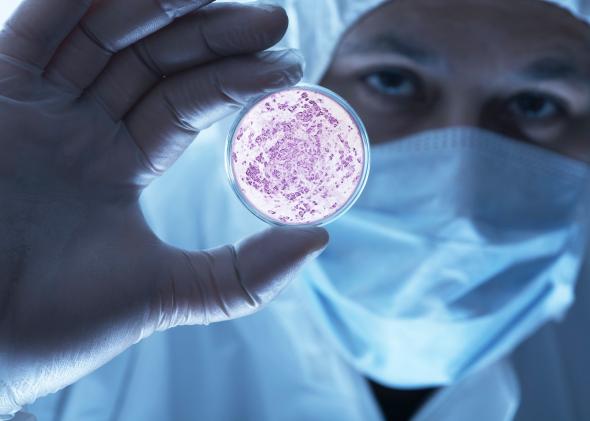Cells are tiny, but what they can reveal about our health is profound.
A misshapen nucleus is bad news. For any given cell, the nucleus — the home of most of a cell’s genetic material — generally takes a fairly consistent shape. But when things go wrong and disease takes hold, the nucleus can become deformed.
UCLA’s Amy Rowat explains how an enlarged nucleus is a telltale sign of something gone awry. Corrupted cells with cancerous leanings take on a different texture to healthy cells. They are softer and more malleable, or, as Amy puts it, more “squishy.”
Her research investigates the texture and squishiness of cells in our body, which can have a huge impact on treatments for cancer and genetic disorders. Using tiny instruments, this change in cellular flexibility can be used to diagnose disease, and could one day help determine which treatments might be most suitable for each patient.
While the minutia of a nucleus may initially seem too tiny to focus on if we’re seeking to understand something as complex as cancer, the ‘squishiness’ of a cell may open up a vast array of innovations and breakthroughs. The significance of basic research is just as consequential as applied research. It seeks to answer larger, fundamental questions and offers the possibility of finding answers with wide ranging effects. Sometimes starting with a broader set of questions can lead to a variety of discoveries whose full impact cannot be known at the outset. A collaboration with the UCLA medical school means Rowat’s work could have a meaningful clinical impact on the study and treatment of cancer and other diseases.
Want to see more? Subscribe to Fig. 1 on YouTube →

